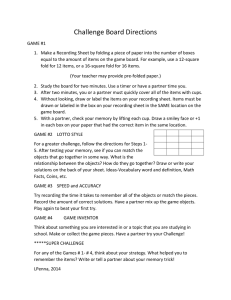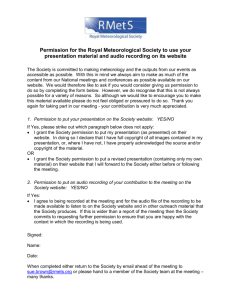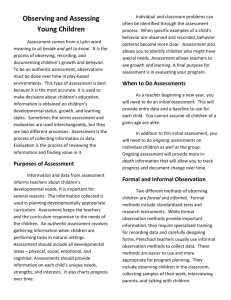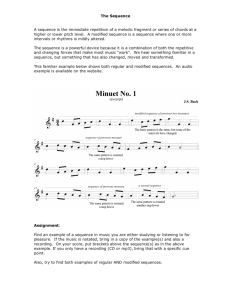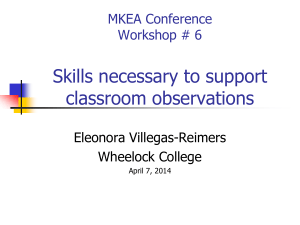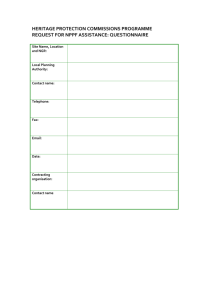Chabot College Fall 2002 Course Outline for Early Childhood Development 69
advertisement
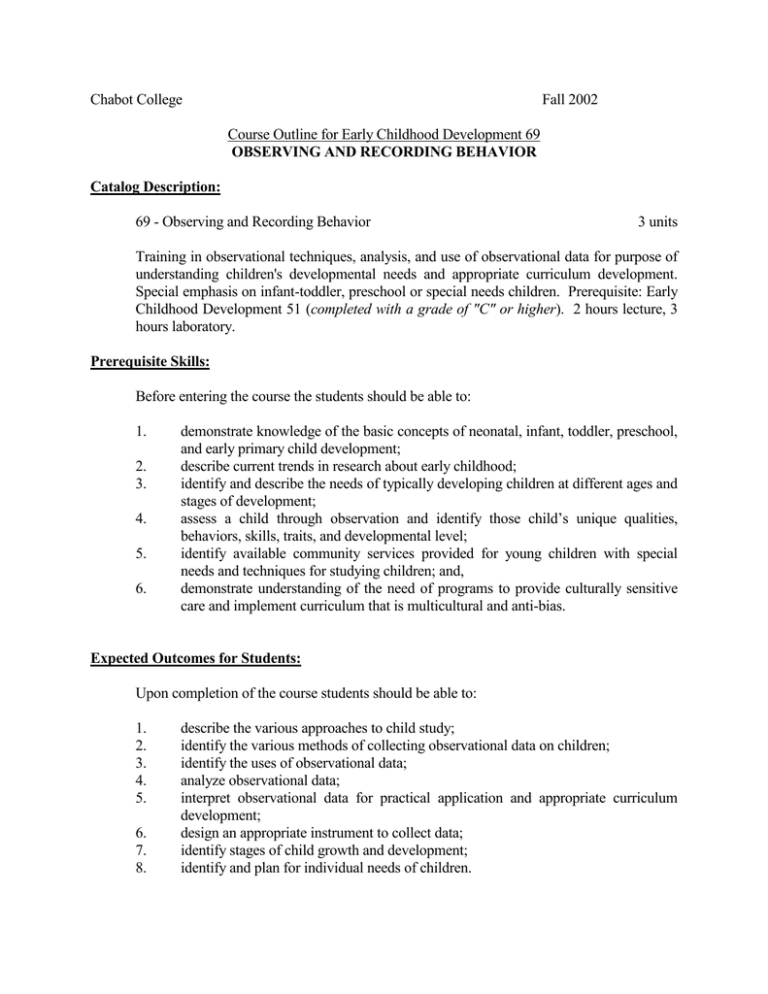
Chabot College Fall 2002 Course Outline for Early Childhood Development 69 OBSERVING AND RECORDING BEHAVIOR Catalog Description: 69 - Observing and Recording Behavior 3 units Training in observational techniques, analysis, and use of observational data for purpose of understanding children's developmental needs and appropriate curriculum development. Special emphasis on infant-toddler, preschool or special needs children. Prerequisite: Early Childhood Development 51 (completed with a grade of "C" or higher). 2 hours lecture, 3 hours laboratory. Prerequisite Skills: Before entering the course the students should be able to: 1. 2. 3. 4. 5. 6. demonstrate knowledge of the basic concepts of neonatal, infant, toddler, preschool, and early primary child development; describe current trends in research about early childhood; identify and describe the needs of typically developing children at different ages and stages of development; assess a child through observation and identify those child’s unique qualities, behaviors, skills, traits, and developmental level; identify available community services provided for young children with special needs and techniques for studying children; and, demonstrate understanding of the need of programs to provide culturally sensitive care and implement curriculum that is multicultural and anti-bias. Expected Outcomes for Students: Upon completion of the course students should be able to: 1. 2. 3. 4. 5. 6. 7. 8. describe the various approaches to child study; identify the various methods of collecting observational data on children; identify the uses of observational data; analyze observational data; interpret observational data for practical application and appropriate curriculum development; design an appropriate instrument to collect data; identify stages of child growth and development; identify and plan for individual needs of children. Chabot College Course Outline for ECD 69 Fall 2002 Page 2 Course Content: 1. 2. 3. 4. 5. 6. 7. 8. 9. 10. 11. 12. 13. Why keep records?; Recording children's behavior during routines; Recording child's use of materials; Recording children's behavior with one another; Recording children's behavior in dramatic play; Child's relationship with adults; Clues to cognitive functioning; Observing children's developmental power to think; Recording children's developing language; Patterns and summary; Observing and recording behavior of infants and toddlers; Observing and recording behavior of preschool children; Recording behavior of children with special needs. Methods of Presentation: 1. 2. 3. Lecture Demonstration Audio-visual presentations Assignments and Methods of Evaluating Student Progress: 1. 2. Typical Assignments a. One in depth child case study b. Final project c. Observing and recording behavior of infants and toddlers. d. Observing and recording behavior of preschool children. e. Recording behavior of children with special needs. Methods of Evaluating Student Progress a. Class participation and discussion b. Outside child observations, evaluated for objectivity and accuracy c. Midterm and Final examination Textbook(s) (Typical): Observing and Recording the Behavior of Young Children, Cohen, Dorothy, Teachers College Press, 2001 or latest edition. Special Student Materials: None Tf:/WORD.DOC/ECD69 Revised 2-12-2002
